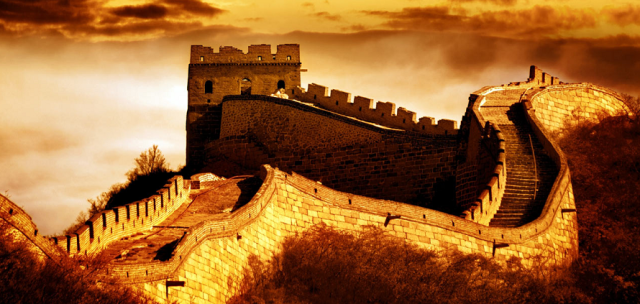Normally, it seems embarrassing to acknowledge that I forget how to approach certain original Chinese expressions or words. How could that be? Unbelievable, right? However, a phenomenon goes the other way around, that is, an increasing number of youths come to mix words from English, French, Japanese, Korean or among others with their native language in order to “show-off”–How international I am?! Largely, it can be explained as the occurrence of words like “Francophone”, “Sino-English”, and etc. to say “sorry” for troubling others’ misunderstanding of our communication. In short, this is a real phenomenon and I do feel it in my daily life.
For certain, it might signify that you have been well educated in school or you have a broader horizon, at least in terms of “internationalization” of languages. However, the more I realize the fact, the urger I feel the need to come back to “primary or junior high school” to polish my mother tongue. Personally, it’s a little bit of shame to abandon my symboles as a Chinese, for instance the Chinese language or basically common cultures.
Today in the course of Strategy, the Professor illustrated some strategic ideas of “change” issue in organisations based on Chinese culture. Interestingly, he approached this case with a Chinese word, “Crisis” in English, and “Wei Ji” in Chinese, which is composed of two characters. The first one “Wei” means “Danger” whereas “Ji” signifies “Opportunities”. In my view, that is exactly what the Chinese cultures’ intelligence about. As from this example, it is not hard to see how the Chinese’s psychology towards the world and the mentality in face of tough situations. As in psychological disciplines, each coin has its two sides, so does the illustration of the Chinese message:
First, all the things all around us are in a developmental stage, which can be referred as “Changes”.
Second, as things are changing, the so-called negative side can be turned around to the other side, a probably positive and favorable side, which can be simplified as a moving and changing circle.
Therefore, it is quite easy to realize that the Chinese culture is really profound, predictive and broad as well as profound.
Actually, it was definitely after this course I began to reflect the phenomenon of “nationality or culture” recognition issue. Certainly, being international could not be a serious or shameful matter. On the contrary, thanks to the globalized trend, the world is flatter, bringing about many challenges as well as opportunities–a double-sized coin! In this case, it is favorable to enlarge our horizons and be aware of different cultures and habits. But what does matter comes to the maintenance and preservation of our native cultures and languages as they are the roots of our international identity.
I have heard of a story from an alumnus who once did an exchange program in Japan. On an occasion, he played piano in front of the Japanese classmates who really outperformed and were more skillful than he was in terms of technique. But at the end of he show, the classmates came to tell him how gorgeous he was and they had never heard of that melodic song before. So what did he learn from that piece of story?
As he said, thanks to the Chinese song, he realized that recognition came from our origin–the rooted cultures. In simple words, the things which are more national are the things recognized as real “International”, which are the keys to show who you are, how you can be like this, and why you are so different. That is the real key to open a door towards another side of the world and make ourselves really connected with others.
In the end, I would say: I am really proud of being “made in China”. That is who I am and why I am like this.
You know, the feeling of self-recognition before being recognized by my fellows is cool! Hope you feel the same as I do.


